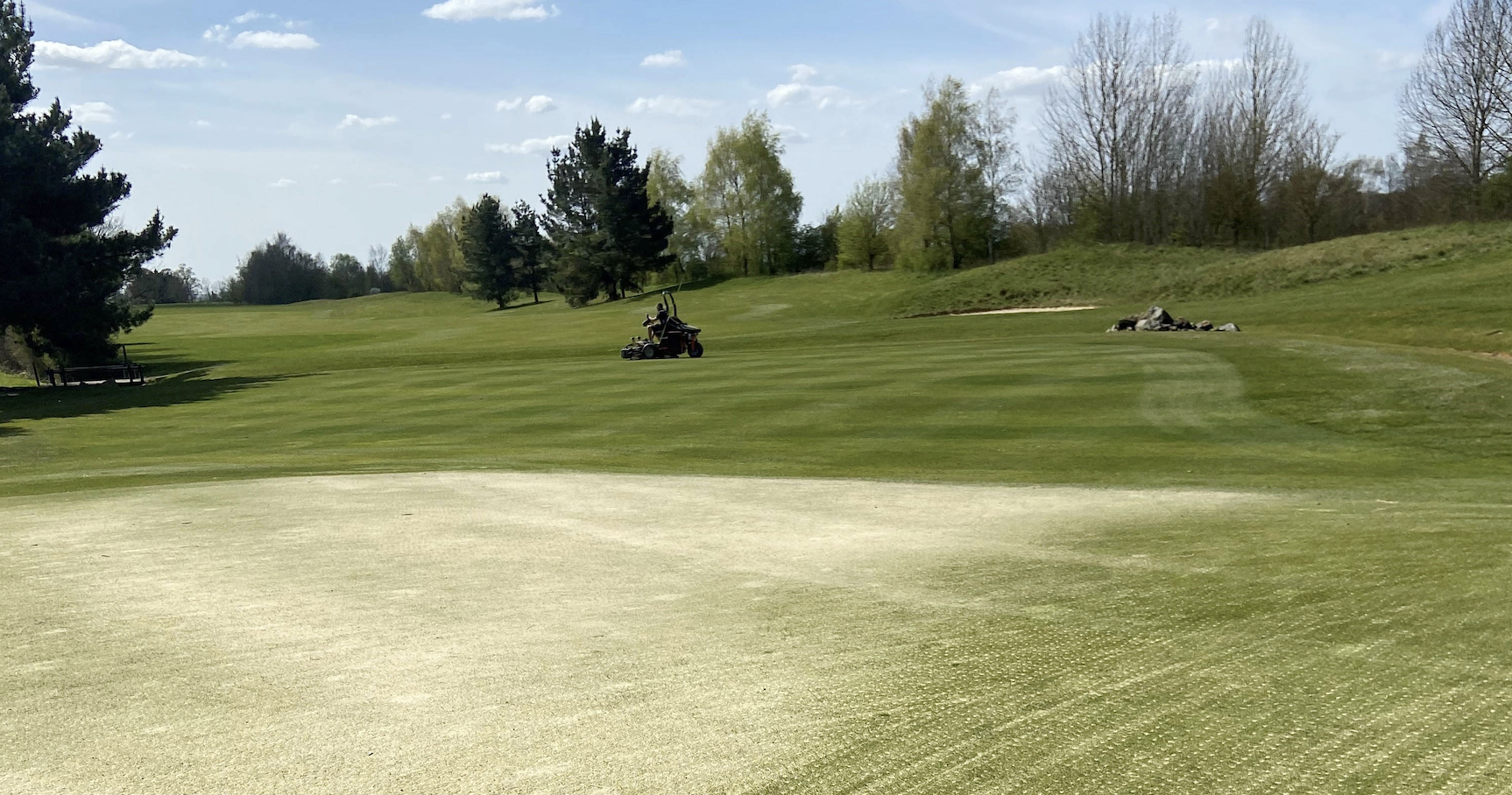When players are asked to describe their ideal putting conditions, the top two words likely to be mentioned on most occasions will be ‘firm and fast’.
For greenkeeping teams, trying to achieve firm, fast surfaces alongside consistency over all 18 holes is tough – but for Chris Brook, Group Course Manager at The Club Company, this challenge is multiplied across 15 individual courses.
Assisting Brook is the technical team from Origin Amenity Solutions who, from conducting in-depth soil-sampling, have helped in the tailoring of the renovation and nutritional requirements of the groups 270 greens.
Brook has been in charge of the group for 25 years, working with the individual green’s teams at the championship golf courses which are dotted up and down the country.
“As a group, we’re always looking for new ways to further course condition, but to move things forward you need an accurate understanding of exactly where you’re starting from,” says Brook. “I got in touch with Laurence McCrory, who joined the Headland brand within Origin Amenity Solutions last year, but who I knew from his time as course manager at Castle Royle and asked if he could help with some in-depth soil analysis.”

McCrory and his OAS colleagues nationwide visited the 15 venues, sampling all greens to take away and analyse multiple variables including moisture content, minerals and organic matter (OM) levels, and assess the loss on ignition (LOI). LOI analysis will reveal the percentage of OM in a green and the depth – be it the top inch, or two inches – to which OM is present.
“With this data, we can then plan down to each individual green what we need to do, or not do, in terms of mechanical maintenance and nutritional inputs to get the best results from every operation and bring each green up to a certain standard,” added Brook. “It’s a worthwhile expenditure, which will then give every team all the information they need to tailor the severity of renovations and put a programme into place which they can map out and action around the unique requirements and demands of their course.
“All sites have different feeding programmes, worked out between the independent greens teams and myself, with Headland Amenity’s 20-20-30 enhanced plant health tank-mix a key part of many clubs plans at this time of year. We’ll then be looking at feeds such as C-Complex in various formulations for a response at lower temperatures and post-renovation recovery.”
Brook concludes, “Having this data at our disposal means we can ensure we are using the right tools and techniques, that we know will work, and using them in the right places at the right time to deliver the surfaces the members want. We can then re-conduct the sampling and review the results on an annual basis to help us monitor progress and ultimately reach the goal of presenting our courses in the very best condition we can.”

